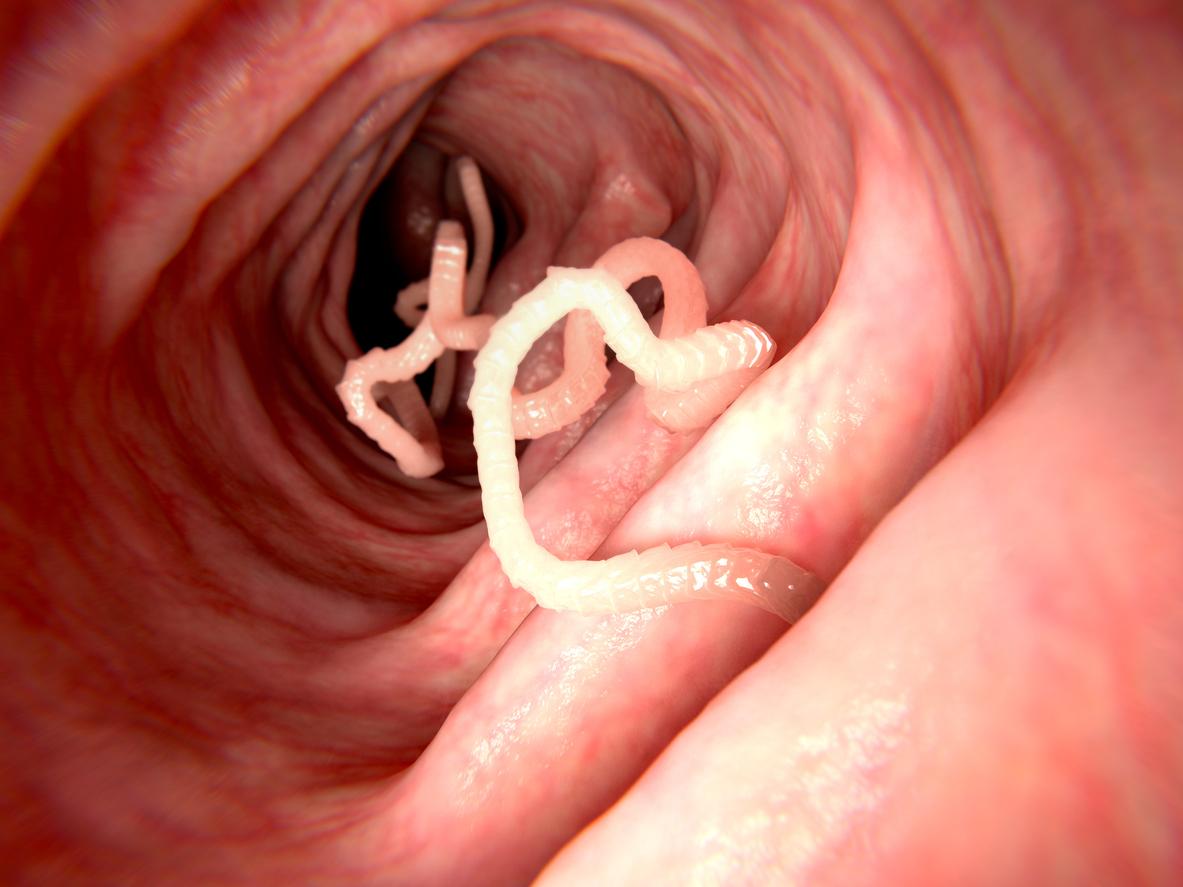Here are the signs that you have an intestinal parasite.

- Intestinal parasitoses are diseases caused by parasites present in the digestive tract.
- There are several symptoms of intestinal parasitosis: irritated and itchy anus, irritability, white worms in the stools, diarrhea, etc.
- To avoid intestinal parasites, it is important to wash your hands regularly.
Pinworm, giardia, roundworm, amoeba, tapeworm, etc. These parasites can, once present in the digestive tract, cause diseases called intestinal parasitoses. According to health insurancein children, the most common intestinal parasitoses are pinworm and the giardiasis.
Symptoms of an intestinal parasite
The symptoms of intestinal parasitosis are as follows:
- Irritated and itchy anus
- Lesions around the anus
- White worms in the stools, which themselves are whiter than usual.
- Irritability
- Difficulty sleeping
- Abdominal pain
- Digestive disorders
- Diarrhea
- Vomiting.
If you experience any symptoms, it is very important to consult your doctor to begin treatment as soon as possible. In general, these diseases remain benign and disappear with appropriate treatment.
Intestinal parasite: how toavoid contamination?
Depending on the type of intestinal parasite, there are two main modes of contamination. The first concerns giardias, amoebas, pinworms, tapeworms and roundworms, these enter the body through the digestive tract, that is to say when we eat a food where the parasite has developed .
The second mode of contamination is through the skin, as with hookworm. Thus, it is possible to be contaminated by hands, by touching an infected object, or, in hot and humid countries, when people walk in dirty water barefoot.
To avoid intestinal parasites, it is very important to wash your hands regularly throughout the day, and especially before eating. To do this, you can use soap or a hydro-alcoholic solution. Finally, when preparing meals, you must also clean the kitchen utensils and the work surface.

















